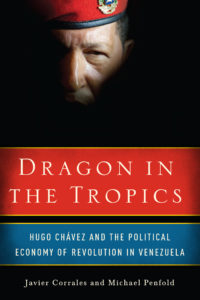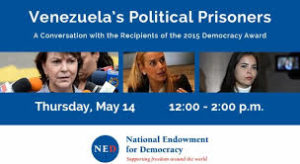 Any democratic transition in Venezuela will need to address the needs of the country’s unconventional military, argues Javier Corrales, a professor of political science at Amherst College and a contributor to the NED’s Journal of Democracy.
Any democratic transition in Venezuela will need to address the needs of the country’s unconventional military, argues Javier Corrales, a professor of political science at Amherst College and a contributor to the NED’s Journal of Democracy.
In every authoritarian regime, military support is the sine qua non of regime survival: Remove the support of the military and the dictator falls. In that sense, the Maduro regime fits the conventional model of authoritarian politics. Democratization requires decoupling the military from Maduro, he writes for the New York Times:
There’s the standard military establishment, which in Venezuela consists of professional career soldiers. Then there are nonstandard groups. They include ideologized soldiers, working together with Cuban military and intelligence officials to crack down on dissent. They also include bureaucrat generals who support Mr. Maduro because they have good jobs running state-owned corporations, and profit-seeking soldiers, who are making a fortune trafficking in illicit markets, including the drug trade. Finally, there are Maduro’s killing agents, in charge of repressing.
 Before the 2000s, the possibility of this type of diversity within the military was hardly discussed in military politics textbooks. Today, this diversity, or what political scientists are calling the new oligopoly of state violence, is what undemocratic regimes and failed states prefer. And in Venezuela, this oligopoly is dominated by the criminal-minded soldiers and killing agents.
Before the 2000s, the possibility of this type of diversity within the military was hardly discussed in military politics textbooks. Today, this diversity, or what political scientists are calling the new oligopoly of state violence, is what undemocratic regimes and failed states prefer. And in Venezuela, this oligopoly is dominated by the criminal-minded soldiers and killing agents.
“Transitioning to democracy in Venezuela will require putting order to this fragmented military,” adds Corrales, co-author of Dragon in the Tropics. “The darkest groups within this institution cannot be invited to join a democratic movement — that would produce an instant conflict of interest. Instead, these groups need to be neutralized somehow.” RTWT







